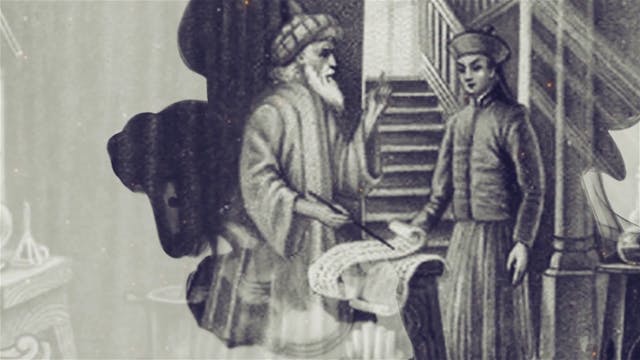Ibn Khaldun
Immortal in Memory, the Great Scholars and Scientists of Islam
•
22m
Ibn Khaldun (1332–1406 CE), full name Abu Zayd Abd al-Rahman ibn Muhammad ibn Khaldun al-Hadrami, was a pioneering Arab historian, sociologist, and philosopher. Born in Tunis, he is best known for his groundbreaking work, "The Muqaddimah" (also known as "Prolegomena" or "Introduction to History"). In this monumental work, Ibn Khaldun outlined his theories on the rise and fall of civilizations, emphasizing the importance of socio-economic factors, cultural dynamics, and the role of leadership in shaping history. His innovative approach to historiography and his insights into the cyclical nature of human societies earned him the title of the "father of sociology" and established his legacy as one of the greatest minds of the Islamic Golden Age. Ibn Khaldun's impact extends far beyond his time, with his ideas continuing to influence fields such as sociology, historiography, and political science to the present day.
Up Next in Immortal in Memory, the Great Scholars and Scientists of Islam
-
Al-Tabari
Abu Ja'far Muhammad ibn Jarir al-Tabari (839–923 CE), commonly known as al-Tabari, was a highly esteemed Persian scholar, historian, and commentator of the Quran. Born in Amol, Iran, he is best known for his monumental work, "Tarikh al-Rusul wa al-Muluk" (History of the Prophets and Kings), commo...
-
Al-Kindi
Al-Kindi (c. 801–873 CE), full name Abu Yusuf Ya'qub ibn Ishaq al-Kindi, was an influential Arab philosopher, mathematician, and scientist during the Islamic Golden Age. Born in Kufa, Iraq, he made significant contributions to various fields, including philosophy, mathematics, astronomy, medicine...
-
Abdul Qader Al-Jilani
Abdul Qadir al-Jilani (1077–1166 CE) is a revered Islamic scholar, mystic, and theologian, known for his influential teachings and spiritual leadership. Born in the Iranian province of Gilan, he later settled in Baghdad, where he founded the Qadiriyya Sufi order, one of the most widespread Sufi o...



